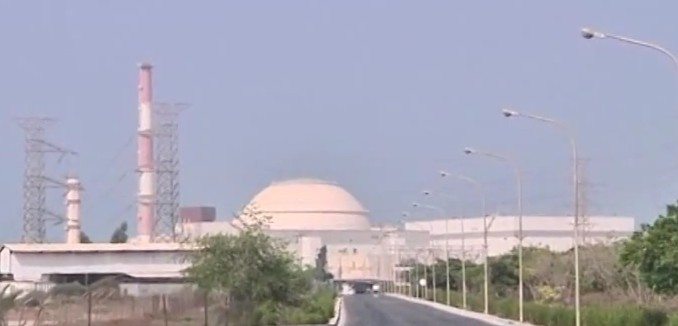Despite the recent release of an International Atomic Energy Agency report determining that Iran pursued nuclear weapons technology until 2009, the U.S. is urging the IAEA to close its investigation into the Islamic Republic’s nuclear program and begin implementing the nuclear deal, the Associated Press reported on Monday.
The AP obtained a draft of a confidential resolution backed by the U.S., Russia, China, France, Britain, and Germany, which urges the 35 members of the agency’s board of governors to vote to close Iran’s nuclear file. Even though the IAEA investigation revealed that Iran had lied and maintained a more extensive nuclear weapons program than previously reported, the resolution will call for closing Iran’s nuclear file, ostensibly because “Iran met specific deadlines in cooperating with the IAEA.”
An analysis of the IAEA report in The New York Times last Friday explained that Iran did not even address all of the questions that it was required to during the investigation. The Obama administration’s apparent willingness to allow Iran to avoid coming clean about the extent of its past nuclear research led the Times to ask:
If Iran could avoid fully answering many of the questions about 12 different technologies it was pursuing, will it be emboldened to stiff-arm inspectors as they seek to enforce the nuclear deal? And what about other states, such as Saudi Arabia and Japan, that might be interested in developing nuclear weapons at some point?
The decision to move forward with the deal, despite Iran’s lies and omissions, prompted an unnamed IAEA official to lament to the Times, “I worry we have created a poor precedent for the future.” The official added, “We have no way to force states to come clean, and never have.”
Several non-proliferation experts saw the IAEA report as reason to continue investigating Iran. A paper released by the Institute for Science and International Security argued that, since the IAEA report revealed concerning information regarding Iran’s nuclear work at the Parchin military complex, Tehran must be pressed to reveal the full extent of its activities at that site.
Emily Landau of the Institute for National Security Studies also wrote in The Tower last week that the IAEA report contradicted “Iran’s narrative of having done no wrong in the nuclear realm,” and provided the basis to challenge Iran’s claims of innocence in international forums.
In addition to what is currently known about Iran’s past nuclear program, there is still much that remains under wraps, making verification of the deal impossible.
Understanding the full history of Iran’s nuclear and nuclear-weapons research “is seen as not just another issue – say, one that Iran could refuse to trade away by making concessions in other areas – but as a prerequisite to verifying Iranian compliance across all issues,” Omri Ceren wrote in The Tower last year.
Because “extensive evidence” existed to suggest that Iran had an illicit nuclear weapons program, Armin Rosen of Business Insider wrote last week, the IAEA needed to be able “to identify key personnel, facilities, supply chains, and past activities to establish exactly how far along Iran’s weaponization activities really are and to recognize whether those activities have been restarted.”
[Photo: JewishNewsOne / YouTube ]




